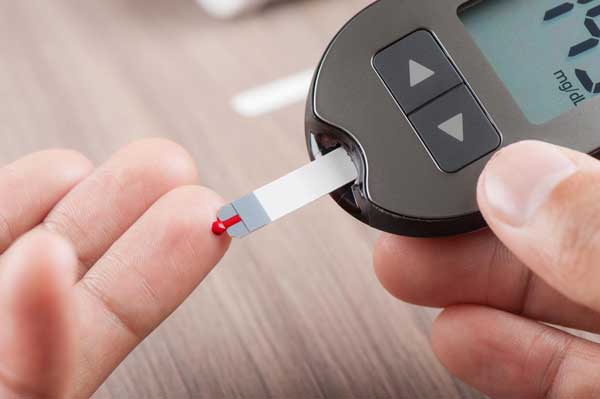Are you struggling with high blood sugar levels? Diabetes can be a challenging condition to manage, especially when it comes to keeping your blood sugar in check. But did you know that there is one thing that can lower your blood sugars faster and more effectively than anything else? It’s improving your insulin sensitivity.

Insulin sensitivity is an indicator of how sensitive or resistant your body is to insulin. Insulin is the hormone that lowers blood sugar, so the more sensitive you are to insulin, the less insulin your body needs to keep your blood sugar levels low. In this article, we will share eight proven tips to improve insulin sensitivity for type 1, type 2, and pre-diabetic patients.
Tip #1: Reduce Stress Levels
Did you know that stress can affect your blood sugar levels? Stress puts your body into fight or flight mode, which stimulates the production of stress hormones like cortisol and glucagon. This breakdown glycogen into glucose that your body can use as a quick source of energy, causing your blood sugar to spike.
To reduce stress levels, identify stressful situations and try to avoid them or learn ways to deal with them without getting stressed. Regular exercise, enough sleep, and breathing techniques can help reduce stress levels.
Tip #2: Exercise Regularly
Exercise helps move sugar from blood to muscles and reduces your blood sugar. It promotes an immediate increase in insulin sensitivity, which can last for two hours to up to two days, depending on the type of exercise. You can choose the exercise you like the most and do it at least three or four times a week. Running, hiking, and high-intensity resistance training are the best kinds of exercise for improving insulin sensitivity.
Tip #3: Get Enough Sleep
Poor sleep can reduce insulin sensitivity. A study involved healthy volunteers who got no more than four hours of sleep a night, and their insulin sensitivity went down. Ensure you get enough sleep, at least 7-8 hours of good quality sleep.
Tip #4: Avoid Processed Foods
Processed foods contain high amounts of sugar, unhealthy fats, and refined carbohydrates, leading to high blood sugar levels. Avoiding these foods can help improve insulin sensitivity.

Tip #5: Eat More Fiber
Fiber is essential for maintaining blood sugar levels. Eating foods high in fiber can slow down the absorption of sugar in the bloodstream, keeping your blood sugar levels more stable. Foods like whole grains, vegetables, fruits, and legumes are high in fiber and can improve insulin sensitivity.
Tip #6: Drink Water
Dehydration can cause blood sugar levels to rise. Drinking water helps reduce blood sugar levels by diluting the concentration of sugar in the bloodstream. Aim to drink at least eight glasses of water a day.
Tip #7: Try Intermittent Fasting
Intermittent fasting can improve insulin sensitivity by reducing insulin resistance. When you fast, your body burns fat for energy, reducing the amount of glucose in the bloodstream. This can help lower your blood sugar levels and improve insulin sensitivity.
Tip #8: Take Care of Your Mental Health
Mental health plays a significant role in blood sugar levels. Stress, anxiety, and depression can increase blood sugar levels, causing insulin resistance. Taking care of your mental health is crucial in managing diabetes effectively.
One way to manage your mental health is to practice stress management techniques like mindfulness meditation, deep breathing, and yoga. These techniques can help you relax, reduce stress and anxiety, and improve your overall sense of well-being. Another essential aspect of taking care of your mental health is to get enough sleep each night. Lack of sleep can cause hormonal imbalances and increase stress levels, which can negatively impact blood sugar levels.

In addition to stress management and getting enough sleep, it’s also important to seek professional help if you’re struggling with mental health issues like anxiety or depression. A mental health professional can provide support, guidance, and treatment options to help you manage these conditions and reduce their impact on your diabetes management.
Finally, staying socially connected is another crucial aspect of taking care of your mental health. Isolation and loneliness can increase stress and negatively affect blood sugar levels. Staying connected with friends and family, joining a support group, or participating in a hobby or activity you enjoy can help you feel more connected and reduce stress levels.
In summary, managing your mental health is just as important as managing your blood sugar levels when it comes to managing diabetes. Incorporating stress management techniques, getting enough sleep, seeking professional help when necessary, and staying socially connected can help you take care of your mental health and improve your overall diabetes management.
